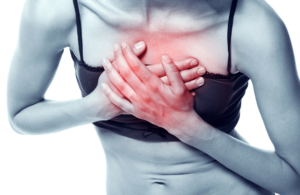 Heartburn and acid reflux feel terrible, right?! Seriously…the struggle is real for those who love food but worry about everything they put in their mouth because it could cause one of the most uncomfortable feelings they have ever experienced.
Heartburn and acid reflux feel terrible, right?! Seriously…the struggle is real for those who love food but worry about everything they put in their mouth because it could cause one of the most uncomfortable feelings they have ever experienced.
So, what do most people do?
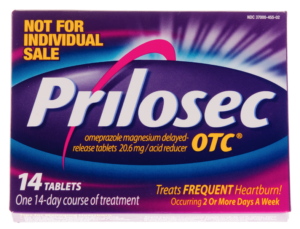
They run for the TUMS, which may work for a second but doesn’t stop heartburn from reappearing again. Some have even chosen to be on a proton pump inhibitor. However, they also find that it isn’t consistently working and that it causes some pretty glamorous side effects, such as diarrhea, headaches and even rashes. Or maybe their physician gave them a prescription for a stomach acid suppressor or antacid, such as Prilosec, Zantac, etc.
Well, here’s a newsflash that goes against what these options are trying to do…
Heartburn and acid reflux are symptoms of a need for MORE stomach acid, not less!
Most people have been told that the reason for heartburn is because they have too much stomach acid…thus, the prescriptions. However, the truth is that probably 90% of the time, those individuals have too little stomach acid! In fact, when the foundation of the issue is not fully addressed, a person may not only suffer from heartburn, acid reflux, GERD and food borne illnesses, but they may also struggle with parasites, anemia, osteoporosis, fibromyalgia, allergies and depression.
Here’s why…
In order for the stomach to be able to breakdown food, absorb nutrients and kill pathogens, it must produce gastric juices, such as mucous, pepsin and Hydrochloric Acid (HCl). This is important because:
- HCl is the first line of defense against pathogenic microorganisms. – We ingest microorganisms everyday through food, drinks and even simply touching our hands to our mouth. Some of these are healthy and necessary. However, many can be very harmful, such as viruses, parasites, food borne illnesses, etc. Without sufficient HCl, we become subject to these disease ridden microorganisms.
- HCl is necessary for the proper digestion and assimilation of proteins. – Proteins are the building blocks of cells, tissues, hormones and the brain! Undigested proteins open the door to weakened immunity, fatigue, depression, allergies, asthma, infertility and so much more!
- HCl is necessary for the body to absorb minerals. – Let’s look at iron, for example. Many of my clients suffered from anemia most of their adult life. They were supplementing with iron; however, their symptoms never improved. Instead, they continued to feel fatigue, constipation and many of the less than enjoyable side affects. They didn’t know that iron can’t be broken down or absorbed in the body without stomach acid, specifically HCl and pepsin. So, they supplemented with iron all day long, but it did no good because their digestion wasn’t addressed first. This also holds true for calcium. Disease’s like Osteoporosis are on the rise. In fact, according to the CDC, 1 in 3 women in the US will suffer with it by the age of 50. I just wonder how much of this problem is because their body doesn’t have the proper stomach acid to breakdown and absorb the calcium needed.
To give you even more of a clear picture, here’s the proper north to south digestion process and how things SHOULD work: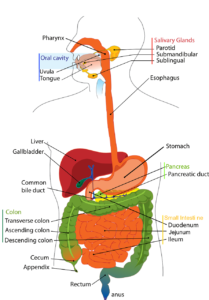
- First, a person smells their food during preparation. This triggers their sense of hunger and begins the production of salivary enzymes in their mouth. This is necessary for digestion and proper breakdown of the food.
- Then, they sit down to eat their food in a relaxed, non-stressed, parasympathetic state.
- They chew their food thoroughly so that no particles are too large for the stomach to break down…and they remind their kids that their “stomach doesn’t have teeth!”
- After swallowing their food, it enters the esophagus and moves into the stomach via the cardiac sphincter. The stomach and a variety of other chemical activities continue the mechanical breakdown of the food. Eventually, the digested food moves into the duodenum, and the nutrients absorbed and utilized.

And now, here’s what happens when there is dysfunction:
- We run to the office fridge, grab our lunch and hop into the car to run a few errands during our lunch hour. With no warning and preparation, there is no proper production of salivary enzymes. Therefore, proteins, fats and carbohydrates are not broken down.
- While sitting in traffic with less than 25 minutes to pick up the dry cleaning, make a stop at the grocery store and grab a Starbucks, we shove food into our face while screaming at the guy in front of us who is not moving fast enough. This stressed, non-relaxed, sympathetic state causes the digestive system to shut down so that the body can respond to the present threat – STRESS.
- Additionally, we aren’t chewing properly because we are operating under the “multi-task in record time” mindset. This adds to the lack of saliva production because the brain doesn’t get the message to trigger a proper digestive response.
- At this point, no stomach acid is being produced. Instead, large pieces of food move through the esophagus towards the stomach, which is “supposed to be” a very acidic environment.
- Thus, our bodies’ incredible innate intelligence kicks in…the stomach doesn’t have enough acid to digest the foods, no salivary enzymes are breaking down the nutrients and the entire system is practically on “hiatus” taking care of the more dominant threat that needed attention, stress…so, the duodenum say, “No, Thank You!” to the incoming food.
- In response, the pyloric sphincter located at the bottom of the stomach, refuses to open up. Therefore, the food is not released into the duodenum. The proteins putrefy, the fats turn rancid and the carbohydrates begin to ferment in the stomach.
- And because most likely, the above “pattern” is common for most meals, the collection of rotted food in the stomach has no other place to go. It now spills over into the esophagus, which is not designed to handle the somewhat acidic foods. Hence, the burning sensation.
- Finally, most individuals manage such circumstances through antacids, which further suppresses the lack of stomach acid already present. Therefore, because the individual continues to hit the “repeat button” for breakfast, lunch and dinner, they ultimately set themselves up for greater problems, such as H. Pylori, Fibromyalgia, depression, esophageal cancer, ulcers and so much more!
Now, I can already hear the question…
“Well, if this in fact is true and I do have too little stomach acid, then why do antacids, such as TUMS and Prilosec, take the edge of momentarily?”
Here’s why…
Antacids raise the pH of the food to neutral. Therefore, it doesn’t burn the esophagus. However, the food is now way too alkaline for the stomach. So, with every dose of antacids, the person is decreasing the amount of HCl in their stomach. This begins the viscous cycle.
So, to help those who suffer from heartburn or acid reflux, here’s my top 10 tips to help:
- Eat in a non-stressed, relaxed parasympathetic state. Use your diffuser and essential oils to help create a relaxed environment.
- Sit down, turn off the television and create an intentional eating “event”.
- Chew food thoroughly. Set down your fork between each bite and try for 30 “chews”.
- Determine if there are any food allergies present. If so, remove those foods as they aggravate digestion.
- If there is a weak esophagus, remove tomatoes, coffee, citrus, spicy foods and carbonated beverages. They can be an additional irritant.
- Avoid grains completely because they are very difficult to breakdown and digest. If eating grains, be sure to soak them to remove the phytic acid.
- Dilute 2 tablespoons of organic raw apple cider vinegar in 1 cup of room temperature filtered water. Drink before each meal.
- Avoid combining proteins with sugar. For example, do not eat fruit with meat.
- Eat smaller portions and do not overeat.
- Enjoy your last meal at least 2 hours before going to bed.
Please Note: For many people, their symptoms are extreme and consistent. Therefore, please consult with a practitioner to heal the digestive system through a personalized therapeutic protocol.
Please Note: This post contains affiliate links. If you make a purchase using these links, there’s no additional charge to you, and I will receive a small commission from the company. This helps to cover the basic costs of this website and allows me to continue providing you with free content. Thanks so much for your support!


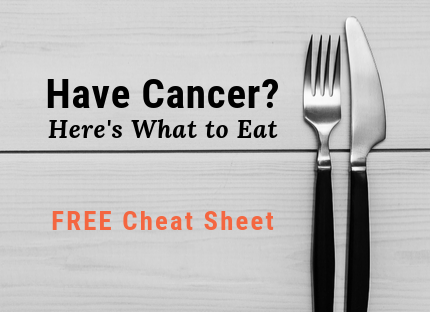

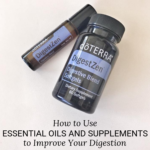
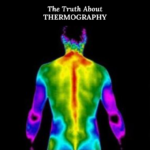

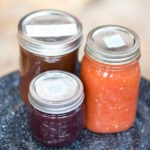



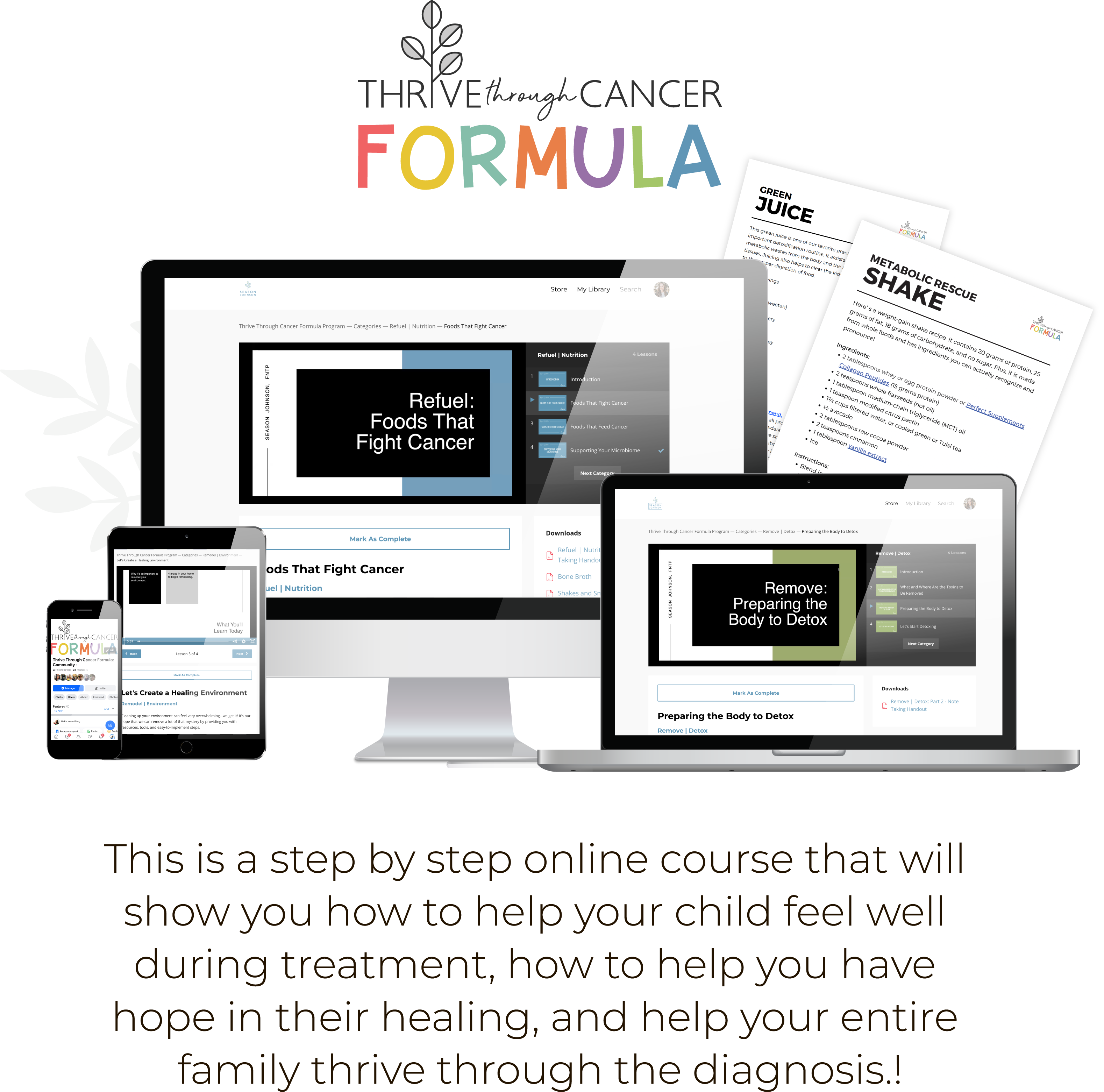


Season – thank you so much. I love listening to you.
I have a five month old in the hospital. He has been there for 7 weeks with pneumonia but it much better now. They are working on his eating and he is not taking enough breastmilk to satisfy them to allow him to come home. He has been on several acid reflux medications and we finally stopped all but Pepcid. The others were decreasing his appetite. He eats well most of the time but sometimes he doesn’t want to eat everything they want him to. What are some tips to manage a baby who has acid reflux?
Hi Holly – I’m so sorry to hear your little one is struggling so much! If your son is on formula, the I would recommend switching over to my Homemade Raw Milk Formula. Here’s the recipe: https://www.seasonjohnson.com/raw-milk-baby-formula/ And if nursing, then remove all gluten, corn, soy and dairy from your diet. Also, begin using Lavender and DigestZen Essential Oils…with Fractionated Coconut Oil…on his belly before and after each feeding.
Thank you Season. He is breastfed currently, though all from a bottle at the moment. I have eliminated all dairy from my diet, but will try for the other things as well. Lavender and Digestzen. Got it.
Is there something that you might suggest for me to be doing or adding to help him?
He was also on several rounds of antibiotics, so I am sure his whole system is struggling. I asked for probiotic drops. Any suggestions for building that all up for babies?
Thank you so much!
Hey Holly – You might want to check out the video I did here on vaccinations, which would help with the antibiotics: https://www.seasonjohnson.com/how-to-detoxify-from-a-vaccine/ Thanks.